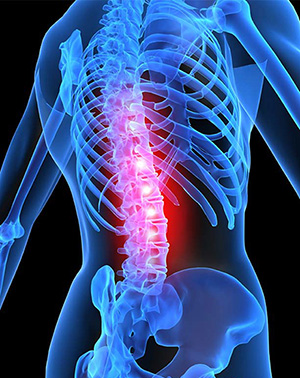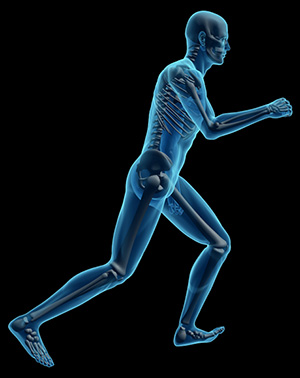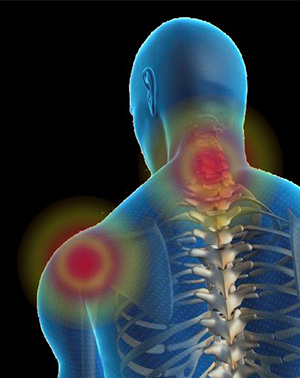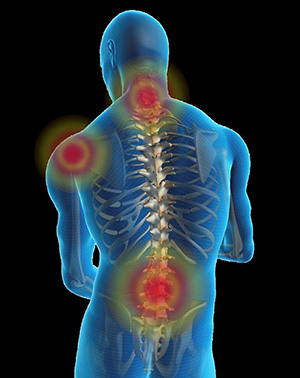Course Overview

Course A - The Lumbar Spine
This 28-hour course introduces the theoretical aspects and concepts of the McKenzie System as it is applied to the musculoskeletal system. The focus of this course, which is the first in the McKenzie course series, is the assessment, classification and management of patients with complaints of low back, related leg symptoms and functional limitations.
In certain countries, all or some of the course is completed as online distance learning. This online component is usually completed prior to attending the teaching venue with an Instructor. In countries that don't utilise online distance learning, the full 28-hour course is completed onsite with an Instructor.
The principles of MDT and how they apply in the context of the biopsychosocial framework of managing patients with musculoskeletal pain and functional limitations will be a key focus. The participants will explore and extensively practice the MDT assessment, classification and management process through lectures, workshops, discussions, role plays and live patient assessments. The MDT classifications are described in detail and appropriate management plans are discussed, with emphasis on the use of patient self-treatment procedures and education. Indications for the use of clinician procedures will also be discussed and the procedures demonstrated and practiced.
Follow-up patient assessments will illustrate the reassessment process and allow participants to get a realistic feel and understanding of the impact of the MDT system on differing patient presentations over 2-3 treatment sessions.
The course will include an illustrated manual and complete reference list. Participants will also have access to videos of all procedures, the full reference list on the MII website and a voluntary self-assessment post-course quiz (English Only).
Course Goals
By participating fully with this course, a participant will be able to :
- Appropriately apply MDT to patients with lumbar spine symptoms, in the context of a biopsychosocial model of care.
- Distinguish between the MDT classifications, and provide appropriate management regimes for each of the classifications.
- Identify Drivers of Pain and Disability that may have implications for the management of patients and their outcomes.
- Identify when the application of clinician forces are required for the resolution of symptoms using MDT’s “progression of forces” concept.
- Assist patients to design and apply the therapeutic processes required to achieve the patient’s goals.
Total Course time: 7 hours online, 21 hours live course
Course Fees
£495
Practical Sessions
During the practical sessions, participants are requested to wear suitable clothing, allowing easy access to the spine.
Course Disclaimer:
Closing date for registrations is 3 weeks prior to the course. Written cancellations will be accepted up to the closing date for each course. Refunds (less a £50 administration fee) will be given, or participants may transfer registration for up to one year. No refunds will be given for cancellations received within three weeks prior to the Course commencement date. The McKenzie Institute (UK) Trust will not be responsible for any costs incurred if minimum registration numbers are not reached and the course is cancelled, however full refunds will be given, or registrations may be transferred to another course. Please confirm with the UK Branch Manager that the course is proceeding prior to purchasing non-refundable air tickets.
Part A must be completed first, and Part D completed last. The order for completing Parts B and C is at the discretion of the course participant. Completion of Parts A to D is a prerequisite for the Credentialling Examination.

Course B - The Cervical and Thoracic Spine
This 28-hour course focuses on the application of MDT to the cervical and thoracic spine. The course details the assessment, classification and management of patients with complaints of cervical and thoracic pain, related arm symptoms and functional limitations.
In certain countries, all or some of the course is completed as online distance learning. This online component is usually completed prior to attending the teaching venue with an Instructor. In countries that don't utilise online distance learning, the full 28-hour course is completed onsite with an Instructor.
The participants will explore and extensively practice the MDT assessment, classification and management process through lectures, workshops, discussions, role plays and live patient assessments. The MDT classifications are described in detail and appropriate management plans are discussed, with emphasis on the use of patient self-treatment procedures and education. Indications for the use of clinician procedures will also be discussed and the procedures demonstrated and practiced.
The principles of MDT and how they apply in the context of the biopsychosocial framework of managing patients with cervical and thoracic pain and functional limitations will be a key focus. The participants will explore and extensively practice the MDT assessment, classification and management process through lectures, workshops, discussions, role plays and patient assessments.
Follow-up patient assessments will illustrate the reassessment process and allow participants to get a realistic feel and understanding of the impact of the MDT system on differing patient presentations over 2-3 treatment sessions.
The course will include an illustrated manual and complete reference list. Participants will also have access to videos of all procedures, the full reference list on the MII website and a voluntary self-assessment post-course quiz (English Only).
Course Goals
By participating fully with this course, a participant will be able to:
-
- Appropriately apply MDT to patients with cervical / thoracic symptoms in the context of the biopsychosocial model of care.
- Distinguish between the McKenzie classifications and provide appropriate management regimes for each of the classifications.
- Identify when the application of clinician forces are required for the resolution of symptoms using McKenzie’s “progression of forces” concept.
- Assist patients to design and apply the therapeutic processes required to achieve the patient goals.
Total Course time: 7 hours online, 21 hours live course
Course Fees
£495
Prerequisites
Completion of the following McKenzie Institute courses, presented by certified McKenzie Institute Teaching Faculty:
Part A: The Lumbar Spine
Practical Sessions
During the practical sessions, participants are requested to wear suitable clothing, allowing easy access to the spine.
Course Disclaimer:
Closing date for registrations is 3 weeks prior to the course. Written cancellations will be accepted up to the closing date for each course. Refunds (less a £50 administration fee) will be given, or participants may transfer registration for up to one year. No refunds will be given for cancellations received within three weeks prior to the Course commencement date. The McKenzie Institute (UK) Trust will not be responsible for any costs incurred if minimum registration numbers are not reached and the course is cancelled, however full refunds will be given, or registrations may be transferred to another course. Please confirm with the UK Branch Manager that the course is proceeding prior to purchasing non-refundable air tickets.
Part A must be completed first, and Part D completed last. The order for completing Parts B and C is at the discretion of the course participant. Completion of Parts A to D is a prerequisite for the Credentialling Examination.

Course C - Advanced Lumbar Spine & Extremities - Lower Limb
This 28-hour course will review and advance the theory and practical application of MDT in relation to the Lumbar Spine and introduce the concept of MDT in the management of lower extremity musculoskeletal disorders.
In certain countries some of the course is completed as online distance learning. This online component is usually completed prior to attending the teaching venue with an Instructor. In countries that don't utilise online distance learning, the full 28-hour course is completed onsite with an Instructor.
The course will firstly assist the participants in expanding their capabilities for the assessment, classification and management of patients with complaints of low back, related leg symptoms and functional limitations. Secondly, the theory and practical application of MDT for lower extremity musculoskeletal disorders is presented. Lectures, patient assessments, discussions and practice of procedures are utilised to demonstrate the characteristics and management of the MDT classifications as they present in the lower extremity.
Problem solving, reflective learning and clinical reasoning activities are utilised to ensure the participant has a broader knowledge of MDT in the biopsychosocial framework of the patient’s experience. The participants will have the opportunity to discuss and extensively practice the MDT assessment, classification and management process through workshops, discussions, and patient assessments. Practical sessions are utilised to develop skills in the application of both self-treatment and clinician procedures.
Follow-up patient demonstrations will illustrate the reassessment process and allow participants to get a realistic feel and understanding of the impact of the MDT system on differing patient presentations over 2-3 treatment sessions.
The course will include an illustrated manual and complete reference list. Participants will also have access to videos of all procedures, the full reference list on the MII website and a voluntary self-assessment post-course quiz (English Only).
Course Goals
By participating fully with this module, a participant will be able to:
For the Lumbar Spine
- Analyse common problems encountered in the application of MDT for the lumbar spine, enhancing clinical reasoning and patient outcomes
- Appraise the MDT assessment within a biopsychosocial framework to accurately diagnose and classify lumbar spine conditions, ensuring a comprehensive approach to patient care
- Examine the MDT assessment process to improve clinical reasoning, ensure patient safety, and promote effective self-management strategies for lumbar spine conditions
- Evaluate MDT management principles, based on MDT classifications, focusing on management, reassessment, patient education, while effectively handling advanced case presentations
For the Lower Extremities
- Indicate the characteristics of MDT classifications specific to the lower extremity
- Apply the MDT assessment within a biopsychosocial framework to accurately diagnose and classify lower extremity conditions, ensuring a comprehensive approach to patient care
- Construct appropriate management programs tailored to MDT classifications specific to the lower extremity
- Recognise the key drivers of pain and disability in patients with lower extremity impairments and associate these with MDT classifications to inform effective management strategies
Prerequisites
Completion of the following McKenzie Institute courses, presented by certified McKenzie Institute Teaching Faculty:
Part A: The Lumbar Spine
Practical Sessions
During the practical sessions, participants are requested to wear suitable clothing, allowing easy access to the spine.
Preparation for the Course
A thorough review of McKenzie's text books (The Lumbar Spine – MDT and The Cervical and Thoracic Spine – MDT) as well as the Part A and Part B course manuals is strongly recommended. Participants are expected to regularly use and to be conversant with the McKenzie assessment forms.
Total course time: 28 hours live course
Course Fees
£495
Course Disclaimer
Closing date for registrations is 3 weeks prior to the course. Written cancellations will be accepted up to the closing date for each course. Refunds (less a £50 administration fee) will be given, or participants may transfer registration for up to one year. No refunds will be given for cancellations received within three weeks prior to the Course commencement date. The McKenzie Institute (UK) Trust will not be responsible for any costs incurred if minimum registration numbers are not reached and the course is cancelled, however full refunds will be given, or registrations may be transferred to another course. Please confirm with the UK Branch Manager that the course is proceeding prior to purchasing non-refundable air tickets.
Part A must be completed first, and Part D completed last. The order for completing Parts B and C is at the discretion of the course participant. Completion of Parts A to D is a prerequisite for the Credentialling Examination.

Course D -Advanced Cervical and Thoracic Spine & Extremities – Upper Limb
This 28-hour course will review and advance the theory and practical application of MDT in relation to the cervical and thoracic spine and introduce the concept of MDT in the management of upper extremity musculoskeletal disorders.
In certain countries some of the course is completed as online distance learning. This online component is usually completed prior to attending the teaching venue with an Instructor. In countries that don't utilise online distance learning, the full 28-hour course is completed onsite with an Instructor.
The course will firstly assist the participants in expanding their capabilities for the assessment, classification and management of patients with complaints of cervical and thoracic, related arm symptoms and functional limitations. Secondly, the theory and practical application of MDT for upper extremity musculoskeletal disorders is presented. Lectures, patient assessments, discussions and practice of procedures are utilised to demonstrate the characteristics and management of the MDT classifications as they present in the upper extremity.
Problem solving, reflective learning and clinical reasoning activities are utilised to ensure the participant has a broader knowledge of MDT in the biopsychosocial framework of the musculoskeletal experience. The participants will have the opportunity to discuss and extensively practice the MDT assessment, classification and management process through workshops, discussions, and patient assessments. Practical sessions are utilised to develop skills in the application of both self-treatment and clinician procedures.
Follow-up patient assessments will illustrate the reassessment process and allow participants to get a realistic feel and understanding of the impact of the MDT system on differing patient presentations over 2-3 treatment sessions.
The course will include an illustrated manual and complete reference list. Participants will also have access to videos of all procedures, the full reference list on the MII website and a voluntary self-assessment post-course quiz (English Only).
Course Goals
By participating fully with this course, a participant will be able to:
For the Cervical and Thoracic Spine
- Analyse common problems encountered in the application of MDT for the cervical and thoracic spine, enhancing clinical reasoning and patient outcomes.
- Appraise the MDT assessment within a biopsychosocial framework to accurately diagnose and classify cervical and thoracic conditions, ensuring a comprehensive approach to patient care.
- Examine the MDT assessment process to improve clinical reasoning, ensure patient safety, and promote effective self-management strategies for cervical and thoracic conditions.
- Evaluate MDT management principles, based on MDT classifications, focusing on management, reassessment, patient education, while effectively handling advanced case presentations.
For the Upper Extremities
- Indicate the characteristics of MDT classifications specific to the upper extremity.
- Apply the MDT assessment within a biopsychosocial framework to accurately diagnose and classify upper extremity conditions, ensuring a comprehensive approach to patient care.
- Construct appropriate management programs tailored to MDT classifications specific to the upper
- Recognise the key drivers of pain and disability in patients with upper extremity impairments and associate these with MDT classifications to inform effective management strategies.
Total Course time: 28 hours live course
Prerequisites
Completion of the following McKenzie Institute courses, presented by certified McKenzie Institute Teaching Faculty:
- Part A: The Lumbar Spine;
- Part B: The Cervical and Thoracic Spine; and
- Part C: Advanced Lumbar Spine & Extremities – Lower Limb
Practical Sessions
During the practical sessions, participants are requested to wear suitable clothing, allowing easy access to the spine.
Preparation for the Course
A thorough review of McKenzie's text books (The Lumbar Spine – MDT and The Cervical and Thoracic Spine – MDT) as well as the Part A, B and C course manuals is strongly recommended. Participants are expected to regularly use and to be conversant with the McKenzie assessment forms.
Course Fees
£495
Course Disclaimer
Closing date for registrations is 3 weeks prior to the course. Written cancellations will be accepted up to the closing date for each course. Refunds (less a £50 administration fee) will be given, or participants may transfer registration for up to one year. No refunds will be given for cancellations received within three weeks prior to the Course commencement date. The McKenzie Institute (UK) Trust will not be responsible for any costs incurred if minimum registration numbers are not reached and the course is cancelled, however full refunds will be given, or registrations may be transferred to another course. Please confirm with the UK Branch Manager that the course is proceeding prior to purchasing non-refundable air tickets.
Part A must be completed first, and Part D completed last. The order for completing Parts B and C is at the discretion of the course participant. Completion of Parts A to D is a prerequisite for the Credentialling Examination.

MDT - Advanced Extremities
Course Overview
This intensive 14-hour course will focus on more advanced principles and practical application through clinical reasoning, problem solving, analysis of case studies, assessment and assessment of patients, and technique work.
Course Goals
The goal of this course is to build on prior knowledge gained from the introduction of extremities in Parts C and D to:
- Appropriately apply the McKenzie System to patients with extremity problems
- Distinguish between the MDT classifications as applied to the extremities
- Practice appropriate treatment regimens for the appropriate MDT classifications
- Identify when the application of force progressions or force alternatives are required for the resolution of symptoms using McKenzie's "progression of forces" concept
- Assist patients to design and apply the therapeutic processes on their own to maintain treatment goals
- Distinguish those patients who will be appropriate for MDT management and those who will not
Prerequisites
Completion of the following McKenzie Institute courses, presented by licensed McKenzie Institute Faculty:
- Part D - Advanced Cervical and Thoracic Spine & Extremities – Upper Limb
Preparation for the Course
To best prepare for the Advanced Extremities course, those who completed the curriculum prior to the inclusion of extremities in Parts C and D are highly encouraged to audit Parts C and D courses or read the textbook, The Human Extremities - Mechanical Diagnosis and Therapy, before attending.
GP Course - Overview of MDT for Physicians
Overview
The McKenzie Method of Mechanical Diagnosis and Therapy is a comprehensive assessment and management system for patients who have musculoskeletal problems of spinal and peripheral origin. The method is evidence based, demonstrating reliability of assessment and success in the management of patients. Utilising the method, the assessment allows for the patients to be categorised.
This course is specifically designed to introduce the broad concepts of MDT to physicians. The course is a one day (7 hours) course comprising an overview of MDT, the literature and includes patient demonstrations.